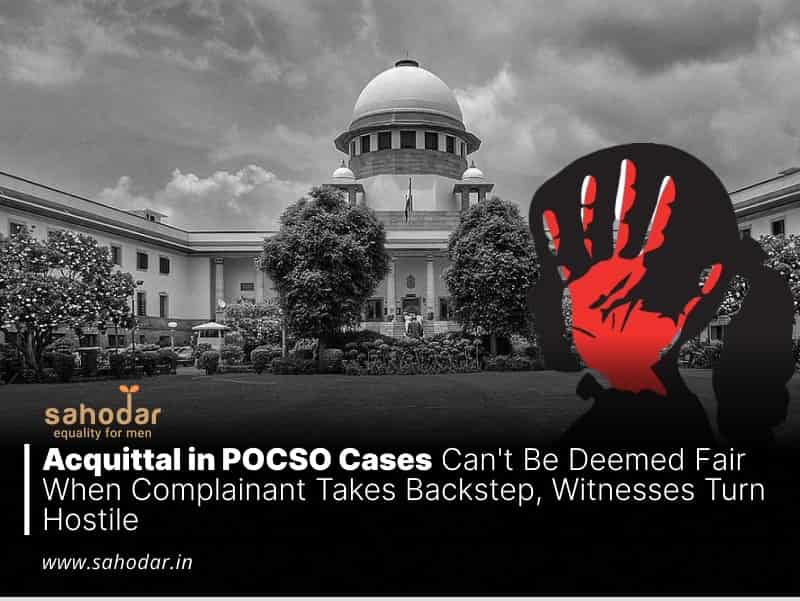On Wednesday, the Supreme Court held that an acquittal in a child sexual assault case cannot be said to be a clean one when the trial has seen witnesses turning hostile, and the complainant taking a U-turn on her allegations or statements.
A bench of Justices Hima Kohli and Rajesh Bindal observed it while referring to an acquittal in a case filed under the POCSO (Protection of Children from Sexual Offences) Act when the survivor had failed to support the prosecution’s case.
The bench noted, “The respondent was acquitted by the trial Court primarily on account of the fact that the complainant did not support the case set up by the prosecution and the other prosecution witnesses had turned hostile. In such circumstances, the respondent’s plea that he had been given a clean acquittal in the criminal case, is found to be devoid of merits.”
The observations came while restoring a Madhya Pradesh High Court single-judge order upholding a State police decision to not to appoint a POCSO accused to the force.
The State police had deemed the accused unfit for the appointment, even though he had been acquitted in the POCSO case filed against him.
The POCSO was made out of a 2015 incident, when the main accused (present respondent) and others were alleged to have wrongly confined the minor complainant and tried to outrage her modesty.
During the course of the trial of the present case, a compromise was taken place between the accused and the survivor, and the offence of wrongful restraint was compounded.
The accused was later acquitted of the charges of sexual harassing and outraging the modesty of the minor, as the survivor did not hold on to her earlier statements recorded as testimonies, and the witnesses also turned hostile.
The accused man had later applied for a constable’s job in Madhya Pradesh, where a Superintendent of Police, at the final stages of selection, deemed him ineligible for appointment as the POCSO offences were offences of moral turpitude.
A single judge of the High Court refused to interfere with the decision of the police, but a division bench allowed the man’s appeal.
In turn, the State government challenged the division bench ruling before the apex court.
The top court, at the outset, noted that though the accused had disclosed the complaint made against him under the POCSO Act, while applying for the police post, the judgment of the trial court in the matter cannot be considered a clean acquittal.
The Court also emphasized that the yardsticks for law enforcement aspirants have to be very strict as compared to other jobs.
Once, appointed to a post for enforcing law, the appointee has a responsibility to maintain law and order to protect the life as well as the property of the public, noted the Court. As such, the morals standards or rectitude for such a candidate is always higher and more rigorous, the Court said.
The possession of a higher moral conduct is one of the basic requirements for an appointment to a post as sensitive as that in the police service, added the Court.
The bench, thus, held that mere acquittal of the accused in this case would not automatically entitle him to be declared fit for appointment to the post of the constable.
Thus, the Court concluded that the State government’s decision was not malafide or arbitrary.
The Court further stated, “In such a case, even one criminal case faced by the respondent in which he was ultimately acquitted, apparently on the basis of being extended benefit of doubt, can make him unsuitable for appointment to the post of a Constable.“
Thus, the State government’s appeal was allowed.
Advocate Bharat Singh represented the Madhya Pradesh government. Advocate Savitri Pandey represented the accused, one Bhupendra Yadav.
News Source: https://www.barandbench.com/news/acquittal-pocso-not-clean-complainant-witnesses-hostile-supreme-court

